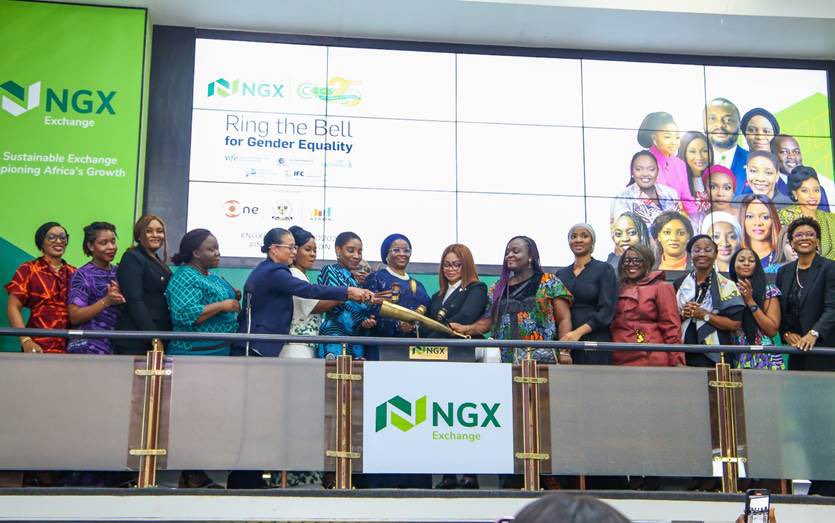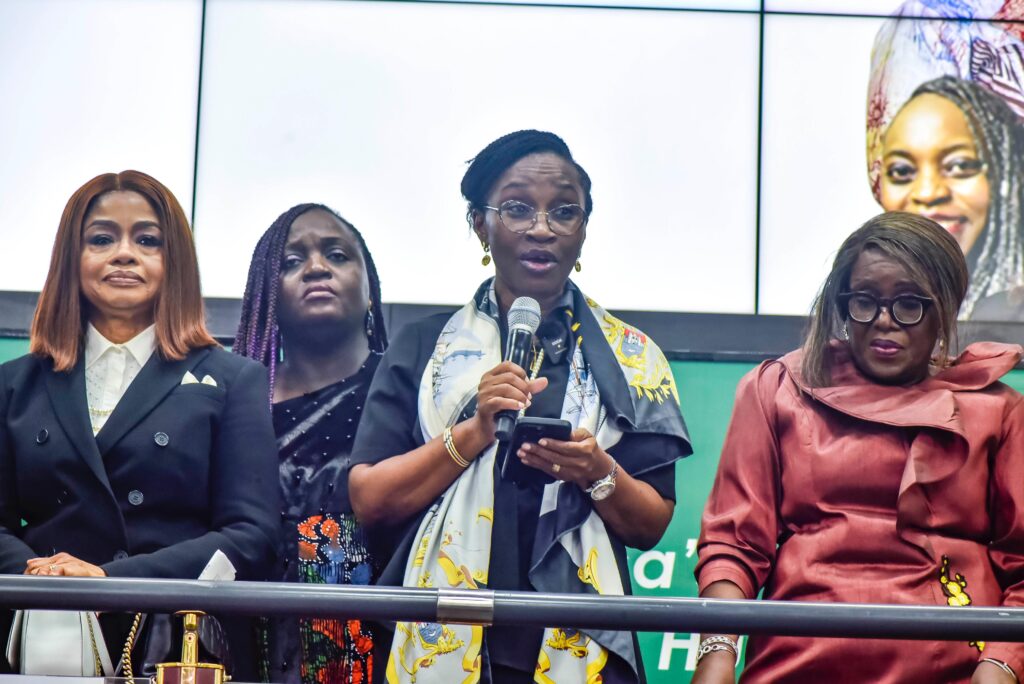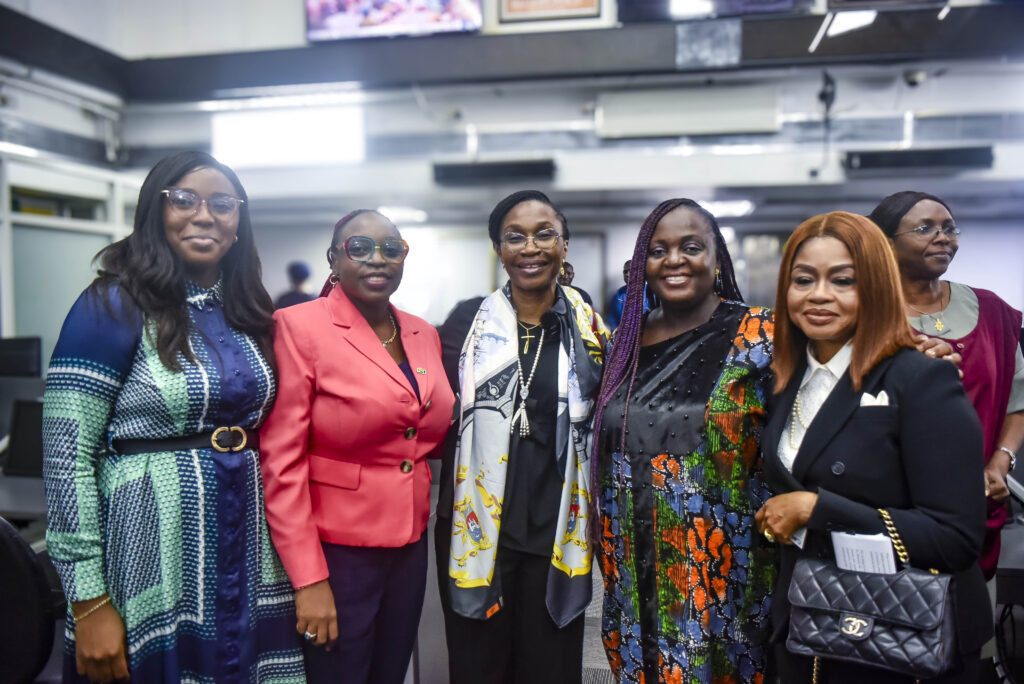
Lagos, Nigeria, March 8, 2024 —Earlier today, the UN Global Compact Network Nigeria joined stakeholders at the 10th annual Ring the Bell for Gender Equality/Closing Gong ceremony held at the Nigerian Exchange Group (NGX) to mark International Women’s Day. In keeping with this year’s theme, “Invest in Women: Accelerate Progress,” the event underscored the significance of empowering women for a more sustainable and prosperous future.
During the ceremony, speakers addressed the issues of bridging the gender gap and fostering women’s leadership within Nigerian businesses, investing in women, human rights, ending poverty, implementing gender-responsive financing, shifting to a green economy and care society, and supporting female changemakers.

Speaking from the podium of the Exchange, Oluwasoromidayo George, Chair of the UN Global Compact Network Nigeria Board, emphasised the urgency of closing the gender gap, which limits progress in achieving SDG 5—Gender Equality—by 2030. “Despite understanding the compelling business case for gender equality, progress on women’s rights remains stagnant. We acknowledge the pivotal role of the private sector in driving gender equality forward.,” she stated.
Naomi Nwokolo, Executive Director of the UN Global Compact Network Nigeria, noted that Gender Lens Investing (GLI) will advance gender equality and better inform investment decisions. “Women and girls in Nigeria are being neglected, with only two of the Goal 5 indicators performing near target, and no SDG 5 indicator performing at the target level. Impact funds can strengthen gender lens investing to pave the way for inclusive and sustainable development that leaves no woman or girl behind.,” she remarked.
World Bank data shows a significant gender gap in economic participation in Nigeria. In 2023, only about 40% of adult women were engaged in the labour force, compared to over 70% of men.
Also, the UN estimates that the gender pay gap costs the global economy USD 160 trillion per year. Addressing the gender pay gap will remove barriers that disadvantage women and hinder progress, unlocking significant opportunities for advancement across the SDGs.
Key speakers featured at the event include Dr. Irene Robinson-Ayanwale, Divisional Head of Business Support Services/General Counsel of Nigerian Exchange Limited; Olubukanla Rufai, Director, Lagos Zone, Securities and Exchange Commission; Yemisi Ayeni, Chairperson of NASCON Allied Industries Plc; Olapeju Ibekwe, CEO, SterlingOne Foundation; Elizabeth Ebi, Group CEO of Futureview Group; Bolanle Austen-Peters, Founder and Creative Director of Terra Kulture; Lilian Olubor, CEO of EFG Hermes; Amina Mohammed, Director of NGX Regulation Limited; Angela Muruli, Gender Project Expert, UN Women, and distinguished actor, Joke Silva (MFR), among others. The Closing Gong ceremony served as a stimulant for further collaboration among stakeholders dedicated to creating a more equitable and inclusive future.
About United Nations Global Compact Network Nigeria
The UN Global Compact Network Nigeria is one of the 74 Local Networks (country offices) of the United Nations Global Compact, the world’s largest corporate sustainability initiative. Guided by The Ten Principles and the 17 SDGs, we support companies and stakeholders in understanding what responsible business means within a global and local context, and provide guidance to translate sustainability commitments into action. The UN Global Compact Network Nigeria stimulates and facilitates the creation of local connections and serves as a catalyst for companies and stakeholders to achieve Agenda 2030.
For more information, visit us at www.unglobalcompactng.org.
About the UN Global Compact
As a special initiative of the United Nations Secretary-General, the UN Global Compact is a call to companies worldwide to align their operations and strategies with Ten Principles in the areas of human rights, labour, environment and anti-corruption. Our ambition is to accelerate and scale the global collective impact of business by upholding the Ten Principles and delivering the Sustainable Development Goals through accountable companies and ecosystems that enable change. With more than 20,000 participating companies, 5 Regional Hubs, 62 Local Networks covering 67 countries and 15 Country Managers establishing Networks in 34 other countries, the UN Global Compact is the world’s largest corporate sustainability initiative — one Global Compact uniting business for a better world.

